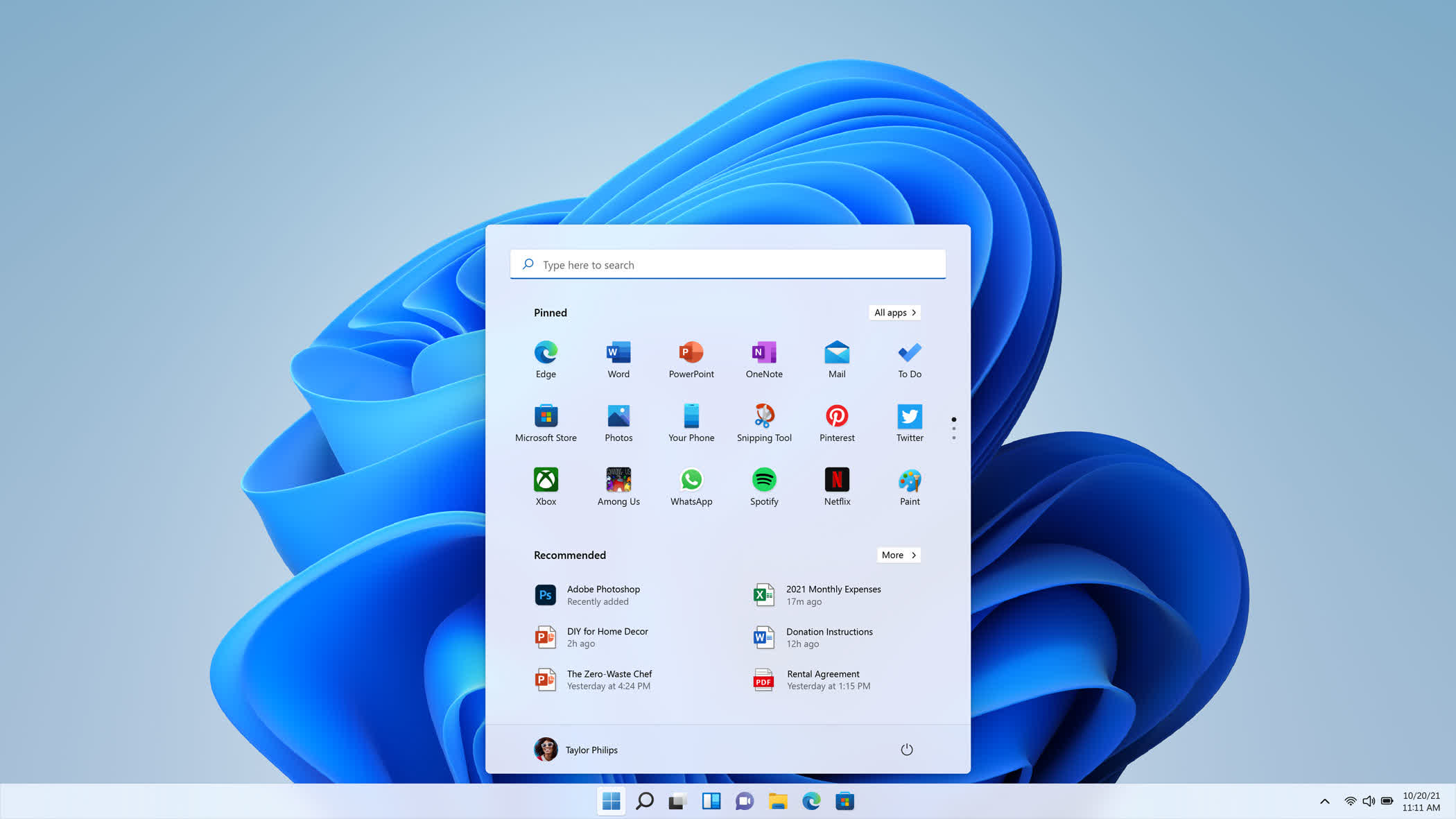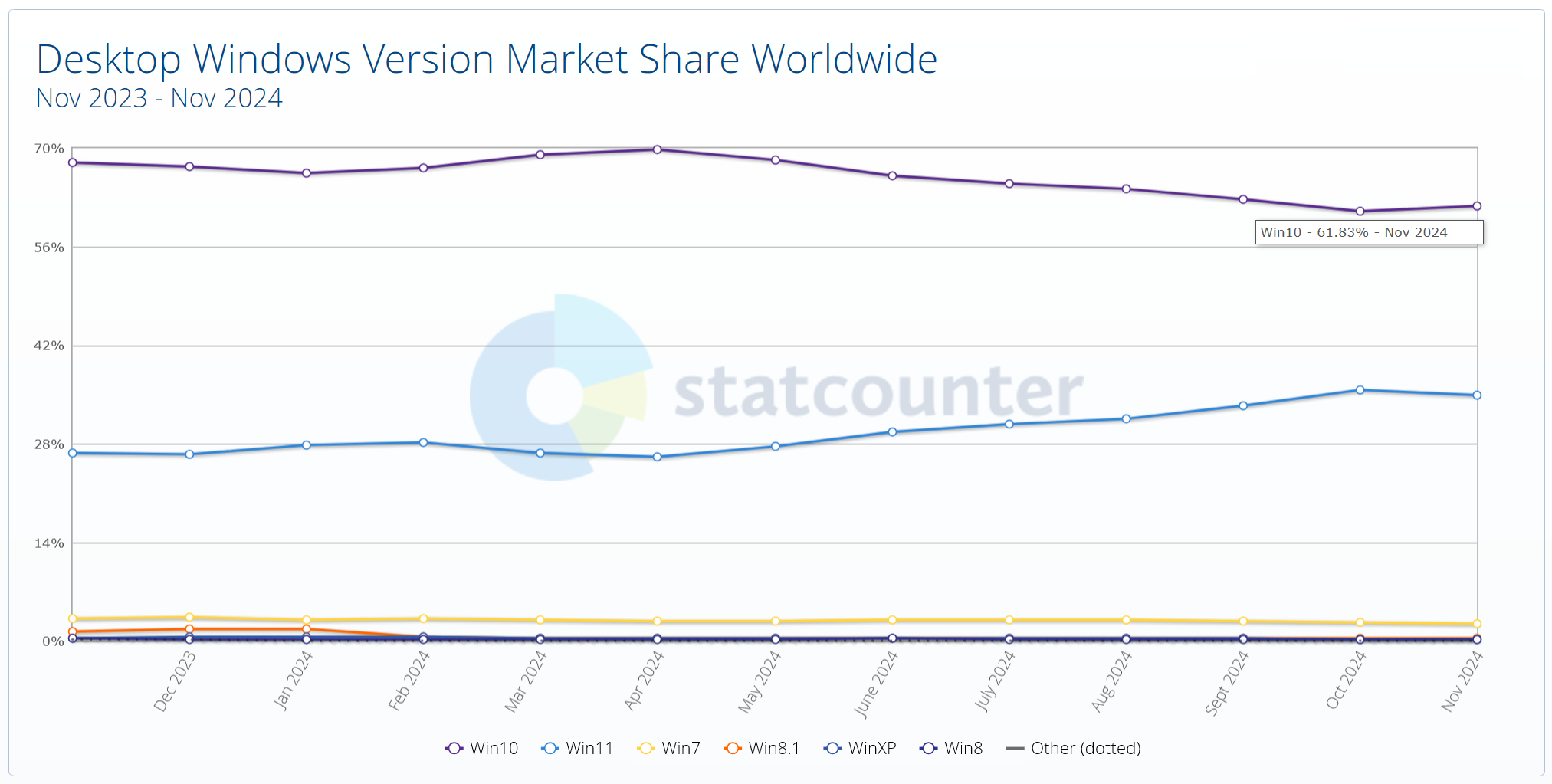A hot potato: Windows 10 is approaching the end of its lifecycle, with security and stability updates set to stop soon. However, many users seem reluctant to move on. In fact, the operating system has grown even more popular compared to a month ago. Could Windows 11 risk becoming Microsoft's next major headache?

According to the latest Statcounter data on desktop OS market share, Windows is currently used on over 72 percent of computers worldwide. However, the most surprising insight comes from the market shares of the two main Windows editions still officially supported by Microsoft.
As of the end of November 2024, Windows 10's market share increased from 60.95 percent to 61.83 percent. Despite being nearly 10 years old, the operating system is seeing unexpected, albeit modest, growth in popularity. Meanwhile, Windows 11's market share dropped slightly from 35.58 percent (in October) to 34.94 percent. Windows 7 is still in use on millions of internet-facing PCs, holding a 2.47 percent market share.
Statcounter explains that its tracking code is installed on over 1.5 million websites globally, recording billions of page views to analyze the browsers and operating systems used to access those sites. While there's no "official" or foolproof statistical system, Statcounter claims to provide independent and unbiased data on internet usage trends.
For months, Windows 11 has seen steady growth in Statcounter statistics, reaching an all-time high adoption rate in October 2024. The official end of mainstream support for Windows 10 is set for October 14, 2025, meaning the operating system will soon be considered "abandoned" for most PC users.
As the latest Statcounter data clearly demonstrates, Windows 10 users remain largely unfazed by Microsoft's support policies and the tech industry's broader tendency toward planned obsolescence, which some argue has environmental impacts. Microsoft appears to be placing Windows 10 low on its business priorities but still hopes to push its remaining user base toward the latest version of the "legacy" operating system for consumer PCs.
Indeed, Microsoft is aggressively pushing Windows 11, even bombarding Windows 10 users with full-screen ads urging them to upgrade. The company is also acknowledging that many are installing Windows 11 on systems that don't meet the OS's minimum hardware requirements. After upgrading, users can enjoy a slew of AI-powered features, along with potential reliability and hardware compatibility issues.
